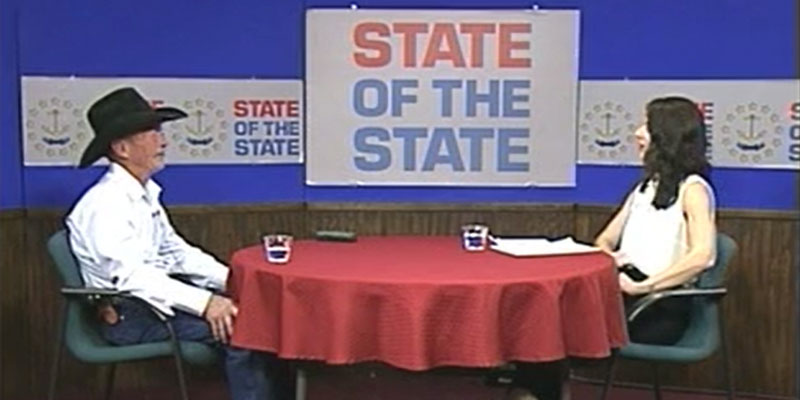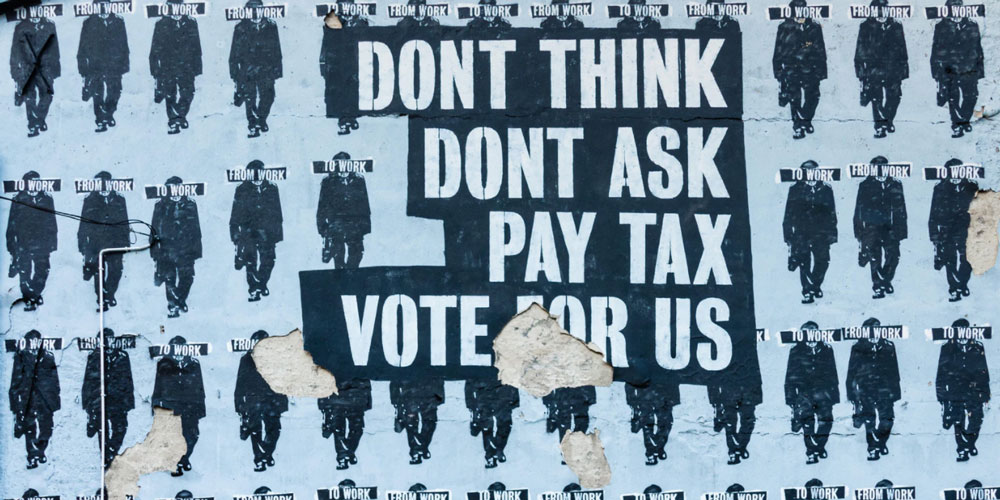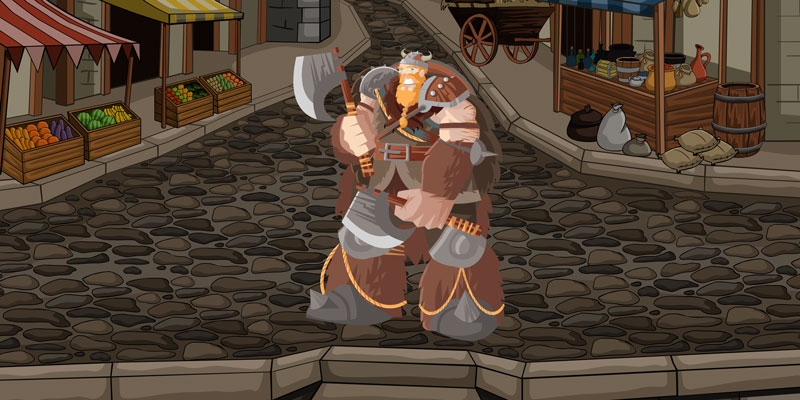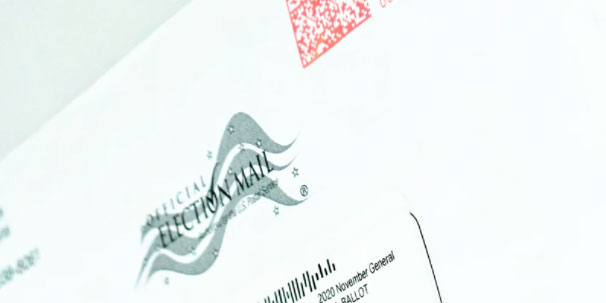The timing could be better, with Rhode Islanders having no opportunity to change direction via the ballot box for two years, but we really need to learn the lesson of overcrowding in our emergency rooms. Namely, among all the various causes, the most significant is socialized medicine:
“We are seeing long visit waits at the local emergency rooms. This is not new; we’ve seen that year after year, and we are back into it again,” Ana Novais, acting secretary of the R.I. Executive Office of Health and Human Services (EOHHS) said Thursday. …
Novais said hospitals are also facing additional challenges, including behavioral health needs for both pediatric and adult patients, emergency department overcrowding, and a national shortage of health care workers. …
“Not every issue needs to be treated in the emergency departments. Many health issues can be treated quickly and effectively by a primary care provider, an urgent care facility, or in another community clinic,” said Dr. Philip Chan, Consultant Medical Director of the R.I. Department of Health.
True, we don’t have “socialized medicine” in the sense that doctors’ paychecks come from the government, but the number of regulations — from personnel certification to “certificate of need” regulations that limit the number of hospitals to mandated coverages in insurance plans to taxpayer subsidized health care plans — amounts very nearly to the same thing, at this point. And government control introduces two problems. First, this type of organization obscures the pricing mechanism, which only means the market is being organized without accurate information. Second, the political urge to please special interests and buy votes inevitably distorts decision-making, whether or not information is accurate.
So, the fact that professional licenses from other states aren’t immediately valid in Rhode Island is just one method by which established players boost the price for their services, but then this bump in pay comes into competition with the fact that the job can be very difficult in short-staffed environments. The fact that many people pay little or nothing for services means they have no reason to seek care in more-appropriate settings when they find others more convenient. And the fact that procedures are required to be covered adds cost to everybody’s insurance (increasing the drive to “get your money’s worth” by every means) and reduces the incentive to limit use of those mandated services.
Yet, articles like Alexandra Leslie’s WPRI link above treat crises simply as something that is happening, to which officials must find a solution. The solution is for officials to stop trying to find solutions! They will only make things continually worse until the system is entirely unsustainable.
Featured image by Vladimir Fedotov on Unsplash.
[Open full post]Guest: Captain Randell Bagwell, www.facebook.com/Bagwellfarmofri
Host: Darlene D’Arezzo Time: 32 minutes
Description: Captain Bagwell candidly shares his life’s journey from boyhood; his early work experience and business endeavors, his first military experience when her was injured, discharged and later rejoined for his second Navy experience. This journey included work for Electric Boat and General Dynamics; marriage and parenthood; various business endeavors; and then a return to cattle farming but this time in Rhode Island. This interesting journey began in childhood and transitioned to young adulthood, and then to combat, followed by his return to civilian life and farming in Rhode Island, to his involvement and service to other veterans.
Michael Chaves of Love Solar
Dr. Shafman on pancreatic cancer
Hans von Spakovsky of the Heritage Foundation on mail ballots
Featured image by Aaron Burden on Unsplash.
[Open full post]Judge Joseph Terence Houlihan yesterday acquitted then-police officer Jeann Lugo of simple assault at the June 24 melee at the State House, finding that Lugo was trying
to break free from Rourke who was restraining him from entering the “melee” that occurred at the rally.
Kudos to Judge Houlihan for issuing this wise and thoughtful ruling.
Jeann Lugo was charged on the basis of a heavily edited video that did not show exculpatory events that immediately preceded the alleged assault; i.e., that his “victim” had just committed battery on him by repeatedly restraining him; or fascinating events involving his “victim” after it. In other words, there was never a basis to charge Lugo.
But the false and defamatory video created by Bill Bartholomew “starring” Jeann Lugo went viral. Hey, that’s all that matters, right? Truth, reality and the prospect of inflicting serious harm on someone are completely irrelevant to the “accomplishment” and satisfaction of your video going viral.
Bartholomew eventually posted his full video of the incident and melee, presumably after Justin Katz called him out for failing to do so. [edited]
By then, it was way too late. [edited] The harm had been done. Bartholomew’s first, [edited] false video led people – in Rhode Island, around the country and even certain brass at the Providence Police Department – to leap to an erroneous conclusion: that out of the blue, without provocation, a man had struck a woman; a white (wait, isn’t he hispanic?? shut up; he’s white in this case) cop struck a black person; a male candidate for public office knowingly struck his female opponent.
The mob had been riled up and was baying for accountability for the “star” of a false video. Lugo was criminally charged.
Never mind that charging authorities did so on the basis of a highly cropped video snippet, apparently failing or refusing to take five minutes to view the full video (credit: Tom Quinlan) of the incident. Never mind that if they had done so, they would have clearly seen the “victim”, Jennifer Rourke, giving better than she got, committing battery against Lugo, which led to his act of self defense, and then violently shoving another man.
I strongly reiterate my suggestions:
> Jeann Lugo should consider pressing assault charges against Jennifer Rourke.
> As should the man whom she violently shoved.
> Most importantly to deter the creation of other dangerously false viral videos, Jeann Lugo should consider suing Bill Bartholomew for defamation.
Meanwhile, very fortunately for justice, the judge presiding over Jeann Lugo’s criminal case looked at all of the evidence, including a video of the entire incident, not just a maliciously edited snippet of it, and allowed the facts of the incident rather than a mob ginned up by a false and highly misleading video to steer his ruling. Judge Houlihan is to be strongly commended for doing so.
[Featured Image Credit: screenshot from Tom Quinlan’s video of the melee.]
[This post was edited on September 18 to add the judge’s name and to correct punctuation in the ninth paragraph. Information in paragraphs 5 & 6 was corrected via strikethrough on September 19.]
On WNRI 1380 AM/95.1 FM, John DePetro and Justin Katz discuss:
- Election recap
- RIGOP’s missing point
- Chair v. chair
- Mail ballots
- Media bias
Featured image by PawelCzerwinski on Unsplash.
[Open full post]We may (or may not) be past having to prove media bias, these days, but an Amanda Milkovits headline in the Boston Globe still seems worth a short note:
Voters largely reject candidates affiliated with conservative group Parents United RI
Contrast with this Boston Globe headline on an Edward Fitzpatrick article from September:
Top R.I. legislative leaders withstand challenges from progressives
Conservatives are “rejected.” Progressives are “withstood.”
The Globe is obviously not alone in this, but readers must remember that all of its reportage must be adjusted to account for its ideological mission.
[Open full post]The Rhode Island Saga, Post 5
When our heroes entered the Marketplace, they discovered five characters with varying leverage. In a business context, we’d call the first category “customers,” which translates in politics as “voters.” Here, our heroes face a unique problem, given “the irreducible something that hints at their ability to overcome the specific challenges of our time” — namely, their “innate conviction that a community should pursue the optimum balance of cooperation and individual liberty, structured so that people can be as free as possible while having opportunities to cooperate as much as possible.”
For marketers selling the competing product of big government, the transaction is much more straightforward. They sell government as the arbiter. People gather together and exchange their votes for advantages from the politicians. Phrasing it less cynically, the vision of the dominating ideology in the Ocean State is that government should be the primary system for our cooperation, and the vote is how individuals buy a say in what that vision should be.
Of course, such transactions are easy to capture with scams, but the relevant point for this post is that the sale is easier. For the Left, your vote is your contribution to a system of morality. So, in addition to those voting for direct payments or favors, progressives’ voters are buying the positive feeling of taking moral stands.
For the heroes of the Rhode Island Saga, this is not the case. To them, individuals define their own morality, and the moral society is one in which everybody voluntarily behaves well, not one in which regulators and police enforce a moral code. Government, in this view, is an institution for maintaining the rules of the game, not defining the identity of the citizenry, and the vote is the individual’s mechanism to enforce these rules, which is something a truly moral society would be able to take for granted.
Fundamentally, our heroes’ proposition is that people shouldn’t have to vote for them, or anybody else, in order to preserve their rights. If the rugged family on the hill comes down to vote, that, in itself, is an indication officials are straying too far, and even those for whom the family does not vote ought to take notice and make adjustments.
(Notice a key distinction, here. In the first view, citizens vote to get something from their officials; in the second, citizens are seen as having such power that officials feel they can only lose good will, never buy it.)
This point of view inherently means voters have a tremendous amount of leverage. Rhode Island’s experience bears this out. The Republican base will fracture with a gust of wind if one faction thinks the other waved a fan. There is nothing in the campaign, directly, for their voters, so it takes very little to withdraw their support. Worse, with such miniscule prospects for the GOP, those who would directly benefit from the policies of freedom they would pursue know that they can’t deliver. Being correct on policy is great, and being intellectually consistent can feel good, but it doesn’t take much to tilt that scale at least to a neutral position. Again, our heroes’ target audience doesn’t have to vote, certainly not for our heroes, and certainly not at this early stage when votes in support of our heroes are almost certainly futile.
How the heroes should respond to this reality is a question we’ll consider when we arrive at a later landmark in the Rhode Island Saga. For now, we need only recognize that the very nature of the worldview by which our state can uniquely be saved leaves all the power in the hands of the people. Our heroes cannot rely on a sense that their “customers” need them, much less that they have no choice but to vote for them.
[Open full post]Story pitch: Behind the scenes, secretly and heroically, a selfless former President leans into his own clichés to create space for his political party to disengage from him. Sacrificing his own aspirations, he masterfully appears to stumble over his reputed faults because he realizes it is the only way to hand off the torch of his influence and save his country.
[Open full post]In the long days since most Congressional districts in the United States managed to provide sufficient vote counts for victors to be named, Republicans have only needed approximately one-quarter of all remaining districts to claim a majority. Thus far, the Democrats have beaten the odds, and the GOP is still eight seats away, which is still about one-quarter of the 33 that remain.
On first glance, it might seem to be an even-handed kind of thing — the ratio of needed wins remaining the same right up until the end — but that’s only the case if you start from the end point and look backwards. That is, maintaining this ratio only makes sense if you believe the system is constructed so as to end up with a tie. If you’re flipping a coin repeatedly and, at some point, heads outnumber tails by a big margin, then it won’t be surprising that the gap evens out over the course of a bunch more flips.
But votes aren’t like flipping a coin, and it’s relevant that the GOP took such an early lead among most of the country. I’ve also left out, so far in this post, the characteristic of the votes’ delay. Being unable to finish the count on election day makes the remaining states a group. Other things equal, one would expect the last quarter of reporting states to carry on the ratio of the majority. In other words, Republicans would have continued winning more than half of the remaining seats. But they haven’t; instead, Democrats have made up ground.
So, either Democrat districts are especially bad at elections, or there’s something fishy going on. That seems like a distinction without a difference.
Here’s another consideration I haven’t articulated thus far: Democrats have made “election denier” an epithet (except when it might apply to their allies), but that’s a convenient distraction from their own rhetoric. They — on up to the occupant of the White House — have been insisting that a big Republican win would be the end of democracy, ushering in a new era of fascism in the United States. It seems to me that somebody who really believes such a thing would be likely to see a little bit of cheating as acceptable in the service of a good cause.
Progressives can proclaim this conspiratorial, if they must, but if it turns out that the states that happened to have delayed results also happened to go disproportionately to the party that happened be projected to lose the election, and which happened to have motivated its supporters with warnings that a loss meant the loss of democracy (not to mention rights and entitlements, like Social Security), questioning the results would not (to put it mildly) be unreasonable.
Featured image by Obi Onyeador on Unsplash.
[Open full post]Yeah, I know the election results are still in the air, so the coin hasn’t stopped spinning on the ground, yet, but let’s make this Day 1 of talking about how the world can be better, rather than how others are making it worse and, more importantly, start doing things to make it so.
Sorry to be mushy, but not only is that how I feel, but it’s increasingly obvious that it’s the only practical solution.
[Open full post]








